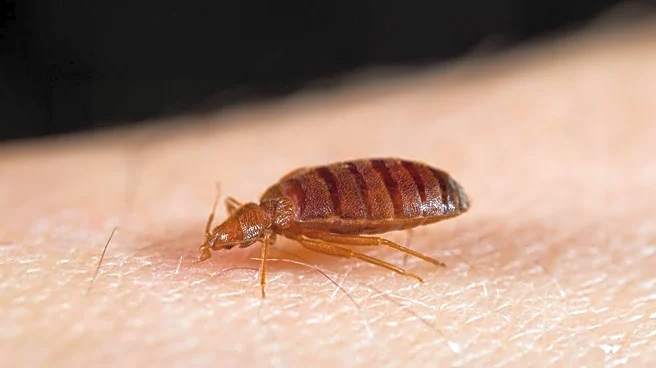What is the story about?
What's Happening?
Chagas disease, a potentially deadly illness caused by the parasite Trypanosoma cruzi, has become endemic in the United States, according to a report by the Centers for Disease Control and Prevention (CDC). The disease, spread by the triatomine bug, also known as the 'kissing bug,' has been detected in 32 states, including Pennsylvania and Wyoming. The parasite is transmitted through the bug's droppings, which can lead to severe heart complications if left untreated. The disease is challenging to diagnose due to its asymptomatic nature and lack of historical prevalence in the U.S. Experts warn that climate change may increase the spread of these bugs further north.
Why It's Important?
The spread of Chagas disease in the U.S. poses significant public health challenges, particularly in regions where the disease was previously uncommon. With an estimated 280,000 people potentially infected without knowing, there is a need for increased awareness and diagnostic efforts. The disease's impact on heart health underscores the importance of early detection and treatment. As climate change potentially expands the habitat of the kissing bug, public health strategies must adapt to address emerging infectious diseases. This situation highlights the interconnectedness of environmental changes and health risks.
















